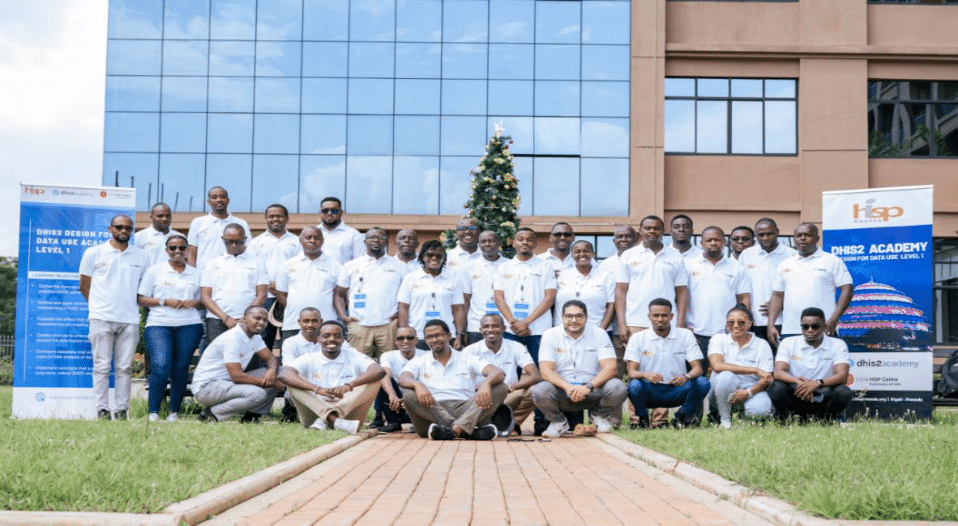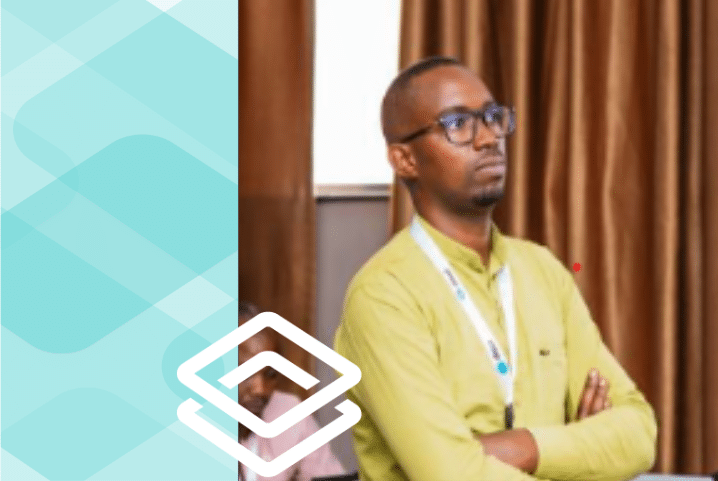The DHIS2 Annual Conference takes place from 15-18 June 2026! Learn more

Visualizing Data in DHIS2 Academy
Join us for the hands-on Data Visualization in DHIS2 Academy in Kigali, hosted by HISP Rwanda in collaboration with HISP Africa and the University of Oslo, where you’ll master essential analytics tools like line listings, pivot tables, charts, and maps to create impactful dashboards for collaborative decision-making.
Format
In PersonLocation
Kigali, RwandaStart date
11 Aug 2025End date
15 Aug 2025Jump to a section on this page
Academy Overview
The Data Visualization in DHIS2 Academy explores the use of various analytics tools to organize information effectively, including line listings, pivot tables, charts, maps, and other types of visualizations. These components can be integrated into customizable dashboards and shared for collaborative analysis and decision-making. Knowing how these tools function and selecting the most suitable visualizations based on data type and audience needs is essential for managing high-performance information systems. This builds on the knowledge gained in the Fundamentals of Aggregate Data Analysis course.

Participants Profile
This academy caters to diverse DHIS2 roles, offering insights and skills to strengthen data-driven decision-making throughout the organization.
- Operational Leads: You oversee strategic decision-making for Health Information Management Systems (HIMS) and ensure alignment between DHIS2 analytics outputs and organizational goals. Your role involves coordinating with senior stakeholders to define reporting requirements, advocate for data-driven policies and monitor how visualizations support programmatic action.
- Implementers: You are responsible for operationalizing, configure and customizing DHIS2 analytics tools (e.g., dashboards, maps) to meet program needs. Your focus is on translating raw data into actionable insights by selecting appropriate visualizations, troubleshooting technical issues, and training end-users to interpret outputs effectively.
- Data Managers: You are responsible to maintain data quality and optimize DHIS2 analytics workflows. Your responsibilities include structuring datasets for visualization, validating analytical outputs, and ensuring dashboards adhere to organizational standards while meeting end-user needs.
- DHIS2 Trainers: To equip teams with skills to leverage DHIS2 visualizations independently. Involves designing capacity-building materials, demonstrating best practices for dashboard design and mentoring users on interpreting charts/maps for decision-making. Trainers will typically overlap with another role, using their expertise from other roles to inform the content presented during training.
Learning Outcomes
In this Academy, you will:
- Master DHIS2 visualization tools to create your own charts, tables, maps, and dashboards.
- Learn best practices for designing clear, relevant visualizations that are easy to interpret in DHIS2.
- Explore analytical tools in DHIS2 for assessing data quality.
- Gain insights into configuring and using the DHIS2 Data Analysis App.
Your Facilitation Team
A practical training program will make sure the facilitators and participants can work together on learning the principles and skills to review the adoption of immunization standards and features locally. With an emphasis on experience and solution sharing among countries and to promote networking and collaboration among DHIS2 implementers in the region, this academy will include several global and regional DHIS2 experts where you will be able to discuss your requirements and implementations during the academy.

Jean Paul Mutali
Jean Paul is a Health Information Systems specialist with over 10 years of experience working with DHIS2 and other health information systems. He currently works as System Administrator and Integration Team lead at HISP Rwanda, supporting the deployment and enhancement of DHIS2-based systems in 10 countries. He has extensive expertise in data visualization, dashboard design, data analytics, and turning data into actionable insights. He has worked on numerous projects aimed at strengthening data use at all levels of the health system

Augustin Dushime
Augustin Augustin is an expert in health information systems with 15+ years of experience in health management information systems and deployment of digital health systems in different settings. He currently serves as a DHIS2-LMIS implementor Specialist at HISP Rwanda, supporting the implementation in more than 10 countries. He possesses a strong skill set in capacity building for data utilization, analytics, and data visualization aimed at enhancing planning and decision-making processes, having facilitated multiple academies in this domain.

Gaston Harerimana
Gaston has over 14 years’ experience in health information management systems, data analytics and capacity building. As DHIS2 Implementer,he has contributed significantly to the implementation, development of the DHIS2 platform in English and French speaking countries, both for solutions based on aggregated data and on individual monitoring of cases, co-morbidities and diseases and diligently supports DHIS2 end users.

Khadija Mzava
Currently working as lead of Information Systems Analyst & Implementer at HISP Tanzania with over 5 years of experience in customization and configuration of DHIS2 system in different aspect. Worked on various projects that focused on designing and implementation of information system management and a Trainer supporting different countries including Tanzania.

Jean Paul Hategekimana
Jean Paul is a senior digital health systems expert with over 12 years of experience in implementing and scaling DHIS2 solutions across Africa. He leads the Systems Implementation and Capacity Building Department at HISP Rwanda, supporting DHIS2 deployments in more than 10 countries,His expertise includes data visualization, analytics, and capacity building to strengthen data use for decision-making..
Fees & Registration
The Academy fees are USD 800 and include:
• Training materials
• Lunch breaks
• Two coffee breaks per day
Venue & Accommodation
Location
Onomo Hotel Kigali is located at the heart of Kigali in the Land of a Thousand Hills. 20 minutes drive from Kigali International Airport, 5 minutes drive from the centre of Kigali and a renowned business district, shopping centres. Onomo Hotel Kigali is simple well organized and comfortable rooms with free Wi-Fi, Satellite TV Channel as well as room service. It also has other amenities like; swimming pool, gym, sauna and massage center to help you rejuvenate yourself.
Accommodation
We are happy to confirm that an exclusive discount rate of USD100 per night Please use the following details for your booking;
Email address: reservations.kigali@onomohotel.com.
Onomo Hotel contact Person: +250783701403
While booking use the code “HISP” to access the discount rate

Travel Information
Airport and airlines
Rwanda’s largest airport is Kigali International Airport, which is the only gateway to the international community. The main airlines operating in Rwanda are Rwanda Air, Kenya Airways, Turkish Airline, Ethiopian Airline and Quatar Airways. Numerous international airlines serve Kigali International Airport from destinations around the world.
The hotel provides airport pick-up on arrival and departure and cabs are also available from the airport to various hotel destinations at an average rate of around $15.
Invitations
The academy organizers will provide invitation letters, if required, only to those who have registered for the academy. Please contact us at rwanda2023@dhis2.org or mmukamisha@hisprwanda.org.
Immigration and visas
All countries obtain a visa on arrival at Kigali airport without prior application. A single-entry visa costs $50. Citizens of member countries of the following international organizations: African Union, Commonwealth, Francophonie are exempt from visa fees. For further details on immigration and visa fees, visit the official website of the Directorate General of Immigration and Emigration. https://www.migration.gov.rw/visa-on-arrival
Time zone
GMT+2
Climate
The dry season reaches its peak in July – September, coinciding with the hottest subtropical temperatures of the year, averaging 27°C at the top and 15°C at the bottom. With such perfect climatic conditions, summer appears to be the most favorable time to travel to Rwanda.
Currency
Rwandan Francs (RWF)
Banking and ATM
In Kigali, banking services and ATMs are available and found everywhere in center accepting Visa and MasterCard, though daily withdrawal limits and queues can occur. Many Services and goods in Kigali are mainly paid in Rwandan currency. When you arrive, please go to an exchange office to obtain the local currency. and consult this website for daily exchange rates. https://www.bnr.rw/currency/exchange-rate.
Official language
Kinyarwanda, English, French and Swahili.
Health care
Healthcare in Kigali is generally accessible, provided through a network of both private and public healthcare facilities. These include hospitals, clinics, and health centers that offer a range of medical services. While many pharmacies have regular business hours, you can find some pharmacies operating 24/7, particularly in key areas of the city. Basic first-aid services are often available at hotels and lodges. However, It is highly recommended to have travel health insurance that can cover medical emergency or carrying any necessary personal medications.
Leisure and Attractions
There are plenty of places to visit while you’re in Kigali, Kigali Car-Free Zone is a popular hub that relies mainly on walking or cycling for transport and Kigali Monument. Nyandungu Urban Wetland Ecotourism Park, which allows people to travel sustainably to enjoy the natural areas and wildlife of the Nyandungu Valley.
Contact Us
Should you have additional questions please contact the DHIS2 Academy organizer at
-
- Contact in Rwanda: rwanda2025@dhis2.org
- Mobile/Whatapps: +250791590407/ +250784506828
- Contact in Rwanda: rwanda2025@dhis2.org
Terms & Conditions
Please review our Terms & Conditions, which apply to every person registering as a participant for a DHIS2 Academy.